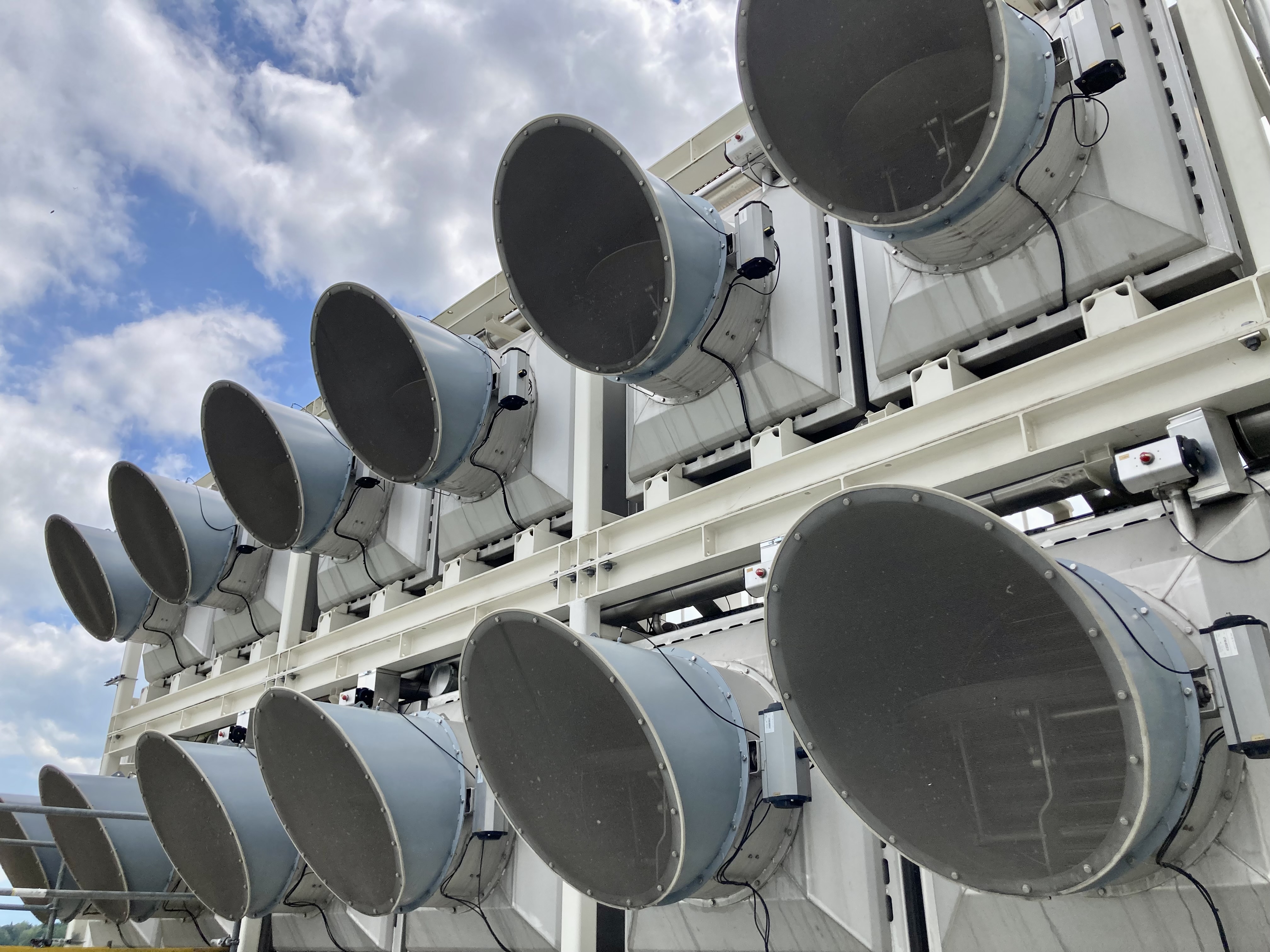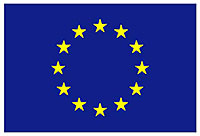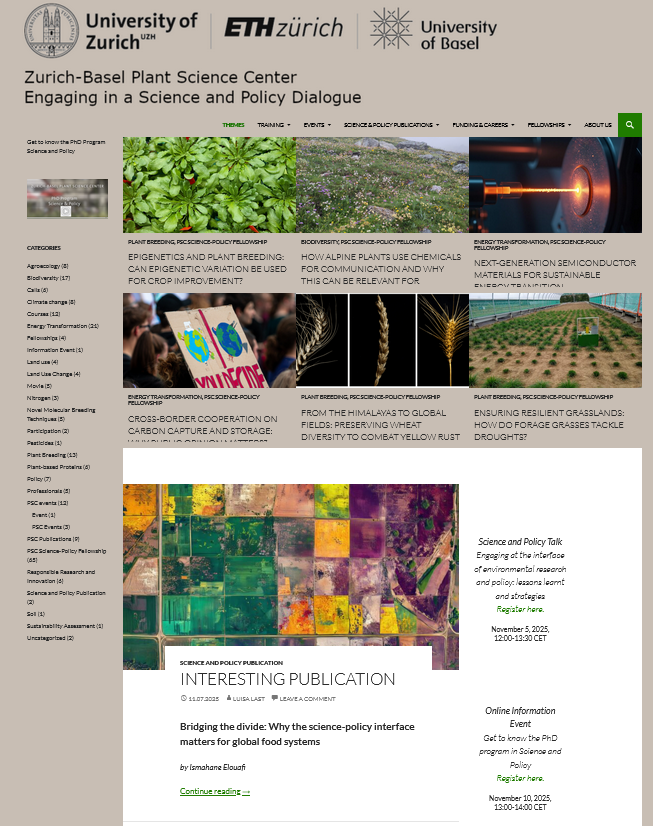Effective Policy Mixes to Mobilize Finance Along the CDR / CCS Supply Chain

Fellowship Duration: Nov 2021 - Jan 2025
PhD Student: Katrin Sievert (LinkedIn)
Principal Investigator: Prof. Bjarne Steffen, Climate Finance and Policy, Department of Humanities, Social and Political Sciences, Center for Comparative and International Studies (CIS), ETH Zurich, Switzerland
Project Partner: Dr. Anna Geddes, Associate, Energy Program, International Institute for Sustainable Development (IISD), Amsterdam, Netherlands
Research Fields: Energy Sciences
Project Description
Carbon Dioxide Removal (CDR) and Carbon Capture and Storage (CCS) could in principle contribute to reaching the Paris Agreement goals of decarbonizing the economy by 2050 and keeping global warming below 1.5–2 °C. But major hurdles for large-scale deployment remain. Besides overcoming technical and logistical challenges, deploying technological CDR (such as Direct Air Capture) and CCS will require the mobilization of finance for the capital-intense technologies, and requires effective support policies to allow for investments into assets along the supply chains.
Specifically, this research project studies the costs and resulting investment needs of technological CDR and CCS and the design of effective policies that are a necessity for finance flows towards such investments. The research project collaborates with a larger project based at ETH Zurich on CDR and CCS, using their pilot as a case study. Specifically, the work uses techno-economic modelling and expert interviews to study cost projections and financing needs along the supply chain of technological CDR and CCS and to evaluate appropriate financing structures.
In collaborating with the energy supply team of the International Institute for Sustainable Development, the barriers hindering large-scale deployment of CCS were discussed first-hand by the ESR during the secondment and published in a policy report. Finally, upon completion of the project, the results of the quantitative and qualitative analysis will be published in scientific journals for future researchers to build upon and for other relevant industry stakeholders to reference. The first paper on cost projections for direct air capture has been published in Joule in 2024. The second paper on the impact of financing structures on CO2 transport is under review and the third paper on the role of direct air capture for aviation decarbonization is in progress.
This fellowship is hosted by the Energy Science Center.
Activities and Publications
Doctoral thesis (ongoing)
Selected as one of the top 30 young scientists tackling climate solutions for the Inflection PhD Award.
ETH Energy Blog article (2023) Diversifying and scaling direct air capture for a net-zero future
Policy brief (2024) on “The impact of financing structures on the cost of CO2 transport” (Research Brief, Working Paper)
Policy brief (2023) on Why the cost of Carbon Capture and Storage remains persistently high
Co-author of peer-reviewed article in Joule (2025) on (How to) avoid the inflationary labeling of emissions as “hard to abate"
Peer-reviewed article in Joule (2024) on Considering technology characteristics to project future costs of direct air capture
Co-author of CESifo Working Papers (2024) on Sequencing Carbon Dioxide Removal into the EU ETS
Co-author of peer-reviewed article in Environmental Research Letters (2024) on Utilizing CO2 as a strategy to scale up direct air capture may face fewer short-term barriers than directly storing CO2
Conference talk at the 18th IAEE European conference (Milan, Italy, July 2023)
Conference talk at the 44th IAEE International conference (Istanbul, Turkey, June 2024)
Conference poster presentation at the Gordon Research Conference (Les Diablerets, Switzerland, June 2023)
Conference talk at the International Conference on Negative CO2 Emissions (Gothenburg, Sweden, June 2022)
Poster presentation at the International Conference on Negative CO2 Emissions (Oxford, UK 2024)
ETH News article (2024) on Cost of direct air carbon capture to remain higher than hoped
Secondment and Research Stay
The secondment at the International Institute for Sustainable Development (IISD) involved gaining a deeper understanding of the work of an international organization, with a specific focus on cost estimates for carbon capture and storage (CCS). The primary objective was to communicate initial research findings on the cost of CCS, particularly relevant to the oil and gas sector in Canada. The internship included two key tasks: writing a policy brief on the cost of CCS and composing a short internal piece on the definitions of clean coal and its implications. Throughout the internship, the major accomplishments achieved included gaining insights into the work of IISD, developing an understanding of how they communicate in their publications, and contributing to the ongoing research efforts of the organization. The secondment and the collaboration culminated in the publication of a report on
Why the Cost of Carbon Capture and Storage Remains Persistently High.
Duration: Nov 2022 - Feb 2023
Research stays abroad:
Stanford University, Doerr School of Sustainability, USA
Duration: Sep 2024 – Dec 2024
Stakeholder Workshop
The presentation Analysis of effective policy designs to overcome financing and acceptance challenges was part of the review of the DemoUpCARMA project that took place at the Swiss Federal Office of Energy in Berne in October 2023. It provided an overview of facilitators of public support for policy packages that incentivize durable carbon removal and international cooperation on CO2 storage based on insights from the research conducted within this project. The audience consisted of civil servants, scientists, industrial and societal stakeholders involved in efforts to scale up Carbon, Capture, and Storage approaches in Switzerland which engaged in a Q&A session after the presentation. The exchange enabled Katrin and her colleagues to locate the implications of our project findings in a border inter- and transdisciplinary context. The setting also offered the opportunity to share a public opinion perspective on Carbon, Capture, and Storage policies with stakeholders and civil servants currently shaping the Swiss policy landscape.


